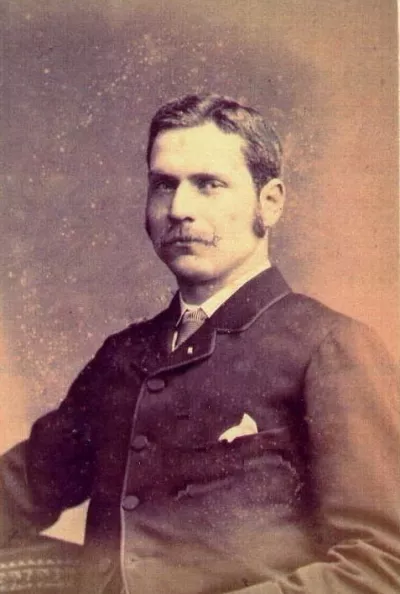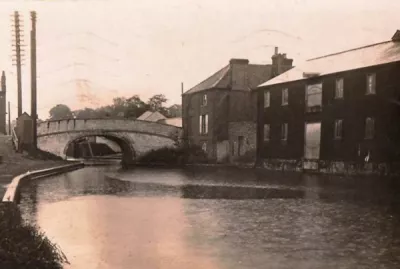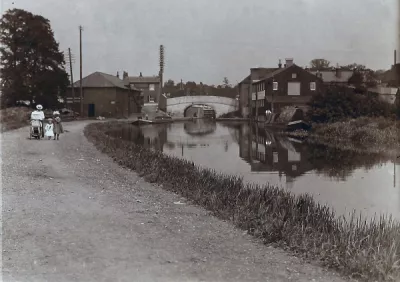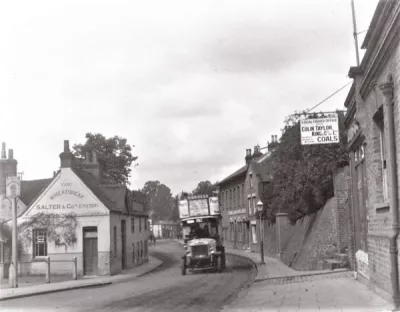Colin Taylor - business man and local council leader

Colin Taylor was born 1859 in Rickmansworth, the son of John and Sophie Taylor. John Taylor, who in 1841 was a land agent, probably for the Moor Park estate, had moved to the Bury in about 1842 after the death of its owner George Alfred Muskett, and had set up a bakery there in 1845, for which he had a short canal arm cut. So the family was reasonably well established in local business related to agriculture.
Colin was carefully prepared for life in business. He left Rugby School at seventeen, and was sent to work in an office in London to learn his business skills. By 1881, aged 22, he was already a corn merchant employing five men, having taken on his father’s business when John died. He married Ann Elizabeth Wood in 1885, and on her early death in 1894 with two small children he re-married Fanny. They lived in Bury Lane, but not actually at the Bury. Colin developed his father’s business, and became a coal and corn dealer on Batchworth Wharf, which also had other manufacturing shops including soap. As a coal merchant he had local offices in the area, including in Watford Lower High Street and in Bushey, Pinner and Northwood.
The local farmer and diarist John White (1813 - 1904) did a great deal of business with both John and then Colin Taylor, for example buying oil cake as cattle feed, and makes many references (espcially to Colin) in his diaries in the 1880s and 1890s.



But it is for his involvement in local affairs that he should be remembered now. He chaired the inaugural meeting of the Rickmansworth Traders’ Association in 1899 and, already a parish councillor, was elected to the first Rickmansworth Urban District Council in April 1898. He took a keen interest in the town in which he had been born - in 1904 and 1905 he led the UDC in asking the County Council to limit the speed of cars in the urban district to ten mph. He also argued as a member of the highways committee that it was their duty to encourage building and assist anyone who wished to develop property (in 1903 he had himself had a dispute over the laying of the new sewers under his land). In 1906 he became County Councillor for Rickmansworth, but remained most interested in local matters, remaining on the UDC with just a short break until his sudden death in March 1925.